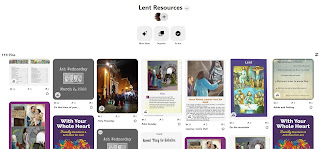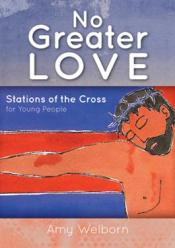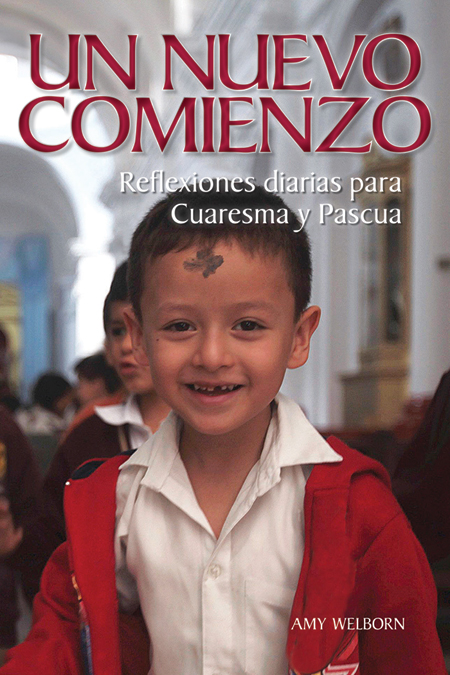by Amy Welborn.
Tuesday, February 28, 2023
Family Devotional for Lent by Amy Welborn
Monday, February 27, 2023
First Reconciliation Class
If you are teaching 2nd grade Catechism this year, the book Friendship With Jesus by Amy Welborn might be a helpful resource.
Friendship with Jesus: Pope Benedict XVI Speaks to Children on Their First Holy Communion
Sunday, February 26, 2023
Lent Fasting
Basil begins this homily by likening his task to that of a general rousing his troops for battle. He cites all the benefits of fasting, particular in contrast to greed and licentiousness. Over and over, in different ways he points out that those who indulge themselves are weighed down, slowed down and weakened. He also addresses that desire we have to feast before the fast, working mightily to discourage overindulgence, particularly drunkenness.
If you were to come to fasting drunk, what benefit is it for you? Indeed if drunkenness excludes you from the kingdom, how can fasting still be useful for you? Don’t you realize that experts in horse training, when the day of the race is near, use hunger to prime their racehorses? In contrast you intentionally stuff yourself through self-indulgence, to such an extent that in your gluttony you eclipse even irrational animals. A heavy stomach is unconducive not only to running but also to sleeping. Oppressed by an abundance of food, it refuses to keep still and is obliged to toss and turn endlessly.
And finally, he describes various groups and categories of people and points out how each of them can approach fasting in the most fruitful way. It's a stem-winder of a sermon! No one's off the hook!
Are you rich? Do not mock fasting, deeming it unworthy to welcome as your table companion. Do not expel it from your house as a dishonorable thing eclipsed by pleasure. Never denounce yourself to the one who has legislated fasting and thereby merit condemnation to bitter penury caused either by bodily sickness or by some other gloomy condition. Let not the pauper think of fasting as a joke, seeing that for a long time now he has had it as the companion of his home and table. But as for women, just as breathing is proper and natural for them, so too is fasting. And children, like flourishing plants, are irrigated with the water of fasting. As for seniors, their long familiarity with fasting makes a difficult task easy. For those in training know that difficult tasks done for a long time out of habit become quite painless. As for travelers, fasting is an expedient companion. For just as self-indulgence necessarily weighs them down because they carry around what they have gorged themselves with, so too fasting renders them swift and unencumbered. Furthermore, when an army is summoned abroad, the provisions the soldiers take are for necessities, not for self-indulgence. Seeing that we are marching out for war against invisible enemies, pursuing victory over them so as to hasten to the homeland above, will it not be much more appropriate for us to be content with necessities as if we were among those living the regimented life of a military camp?
Take fasting, O you paupers, as the companion of your home and table; O you servants, as rest from the continual labors of your servitude; O you rich, as the remedy that heals the damage caused by your indulgence and in turn makes what you usually despise more delightful; O you infirm, as the mother of health; O you healthy, as the guardian of your health. Ask the physicians, and they will tell you that the most perilous state of all is perfect health. Accordingly experts prescribe going without food to eliminate excessive eating lest the burden of corpulence destroy the body’s strength. For by prescribing not eating food to eliminate intemperance, they foster a kind of receptivity, re-education, and fresh start for the redevelopment of the nutritive faculty. Hence one finds the benefit of fasting in every pursuit and in every bodily state, and it is equally suitable for everything: homes, fora, nights, days, cities, deserts. Therefore, since in so many situations fasting graces us with something that is good in itself, let us undertake it cheerfully, as the Lord said, not looking gloomy like the hypocrites but exhibiting cheerfulness of soul without pretense.
Saturday, February 25, 2023
First Sunday of Lent
The beginning of the account of the Temptation in the Desert - always the Gospel for the First Sunday of Lent - from The Loyola Kids Book of Bible Stories by Amy Welborn
Remember, those stories are arranged in sections according to the liturgical season in which one would normally hear that particular Scripture narrative. So, this is in the "Lent" section
Friday, February 24, 2023
How to fast during Lent
Dorothy Day on Fasting:
Amy Welborn is a contributor - five devotions per issue - to the Living Faith daily devotional quarterly.
March 4, 2020
Catholic activist and reformer Dorothy Day fasted often, sometimes as a form of protest, but always, fundamentally, as a spiritual practice. There was no dithering or questioning in her mind about the value of fasting. It was essential, as she wrote, "not only as a sign of sorrow for sins, an offering to God of their life, but also to have the means to show their love for their brother who was afflicted.
Thursday, February 23, 2023
Stations of the Cross booklet for Lent
In 1991, Pope John Paul II introduced a new Bible-based interpretation of the Stations of the Cross. This devotional guide invites readers to prayerfully walk in solidarity with Jesus on his agonizing way of the cross—from his last torturous moments in the Garden of Gethsemane to his death and burial.
Now with full-color station images from previously unpublished paintings by Michael O'Brien, this booklet creates an ideal resource for individual or group devotional use, particularly during the Lenten season.
Wednesday, February 22, 2023
Lent Pinterest Board
Lent is a 40 day season of prayer, fasting, and almsgiving that begins on Ash Wednesday and ends at sundown on Holy Thursday. It's a period of preparation to celebrate the Lord's Resurrection at Easter. During Lent, we seek the Lord in prayer by reading Sacred Scripture; we serve by giving alms; and we practice self-control through fasting. We are called not only to abstain from luxuries during Lent, but to a true inner conversion of heart as we seek to follow Christ's will more faithfully. We recall the waters of baptism in which we were also baptized into Christ's death, died to sin and evil, and began new life in Christ.
Many know of the tradition of abstaining from meat on Fridays during Lent, but we are also called to practice self-discipline and fast in other ways throughout the season. Contemplate the meaning and origins of the Lenten fasting tradition in this reflection. In addition, the giving of alms is one way to share God's gifts—not only through the distribution of money, but through the sharing of our time and talents. As St. John Chrysostom reminds us: "Not to enable the poor to share in our goods is to steal from them and deprive them of life. The goods we possess are not ours, but theirs." (Catechism of the Catholic Church, no. 2446).
In Lent, the baptized are called to renew their baptismal commitment as others prepare to be baptized through the Rite of Christian Initiation of Adults, a period of learning and discernment for individuals who have declared their desire to become Catholics.
Monday, February 20, 2023
Feast of the Chair of St. Peter
The Feast of the Chair of St. Peter is February 22, but that is Ash Wednesday.
Here's a meditation from Living Faith by Amy WelbornFebruary 22 - the Feast of the Chair of St. Peter
When I think about each of the important older people in my life (all deceased because I'm one of the older ones now), all are associated with a chair.
My father's preferred spot was his desk chair in his study. My mother spent her days in her comfortable chair in the corner, surrounded by books. My great-aunt was not to be disturbed as she watched afternoon soap operas from her wingback chair. My grandfather had his leather-covered lounger, its arms dotted with holes burned by cigars.
More
Sunday, February 19, 2023
Lent Begins February 22
If you’re on the lookout for resources for yourself, your kids or your parish or school, take a look at these. It’s not too late to order parish resources. Many of these are available in digital formats, so it’s never too late for those:
- Reconciled to God, a daily devotional from Creative Communications for the parish. You can buy it individually, in bulk for the parish our your group, or get a digital version. (.99)
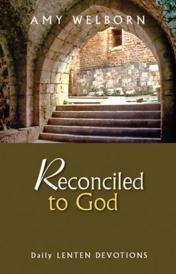
Daily Lent Devotional
Friday, February 17, 2023
Fra Angelico - February 18
Today is the feast of Fra Angelico, beatified by Pope John Paul II in 1982.
The Loyola Kids' Book of Saints by Amy Welborn
Over 40 saints' lives,written at a middle-school reading level.
I. Saints are People Who Love Children St. Nicholas,St. John Bosco, St. Elizabeth Ann Seton, Blessed Gianna Beretta Molla
Saints Are People Who Love Their Families St. Monica,St. Cyril and St. Methodius, St. Therese of Lisieux,Blessed Frederic Ozanam,
Saints Are People Who Surprise OthersSt. Simeon Stylites,St. Celestine V,St. Joan of Arc,St. Catherine of Siena
Saints Are People Who Create St. Hildegard of Bingen,Blessed Fra Angelico,St. John of the Cross,Blessed Miguel Pro
Saints Are People Who Teach Us New Ways to Pray St. Benedict,St. Dominic de Guzman,St. Teresa of Avila,St. Louis de Monfort
Saints Are People Who See Beyond the Everyday St. Juan Diego, St. Frances of Rome, St. Bernadette Soubirous, Blessed Padre Pio
Saints Are People Who Travel From Home St. Boniface, St. Peter Claver, St. Francis Xavier, St. Francis Solano, St. Francis Xavier Cabrini
Saints Are People Who Are Strong Leaders St. Helena, St. Leo the Great, St. Wenceslaus, St. John Neumann
Saints Are People Who Tell The Truth St. Polycarp, St. Thomas Becket, St. Thomas More, Blessed Titus Brandsma
Saints Are People Who Help Us Understand God St. Augustine of Hippo, St. Jerome, St. Patrick, St. Thomas Aquinas, St. Edith Stein
Saints Are People Who Change Their Lives for God St. Ambrose, St. Gregory the Great, St. Francis of Assisi, St. Ignatius of Loyola, St. Camillus de Lellis, St. Katharine Drexel
Saints Are People Who Are Brave St. Perpetua and St. Felicity, St. George, St. Margaret Clitherow, St. Isaac Jogues, The Carmelite Nuns of Compiegne, St. Maximilian Kolbe
Saints Are People Who Help the Poor and Sick St. Elizabeth of Hungary, St. Vincent de Paul, St. Martin de Porres, Blessed Joseph de Veuster
Saints Are People Who Help In Ordinary Ways St. Christopher, St. Blaise, St. Anthony of Padua, St. Bernard of Montjoux
Saints Are People Who Come From All Over the World Blessed Kateri Tekakwitha, St. Paul Miki, Blessed Peter To Rot, Blessed Maria Clementine Anuarite Nengapeta
Thursday, February 16, 2023
When is Ash Wednesday?
We all try to pray more and pray more deeply during Lent. These resources might help. Lent begins on February 22.
- Michael Dubruiel’s The Power of the Cross is out of print, but feel free to download it here.
- Throughout the years, parish groups have used The Words We Pray for study groups – you might consider that, as well.
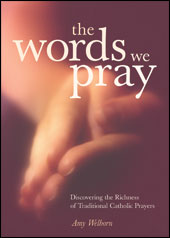
- Or you might take a look at the book I wrote for the Pivotal Players series. That might work for you.
Wednesday, February 15, 2023
Stations of the Cross for Lent
Many parishes and school pray the Stations of the Cross on Fridays during Lent. If you would like a version specifically written for teens, take a look at this version by Amy Welborn.
- A few years ago, I wrote a Stations of the Cross for young people called No Greater Love, published by Creative Communications for the Parish. They put it out of print for a while…but now it’s back!
Tuesday, February 14, 2023
Spanish Lent Resources
Monday, February 13, 2023
Sts. Cyril and Methodius - February 14
Sts. Cyril and Methodius' feast day is today.
They're in the Loyola Kids Book of Saints by Amy Welborn.
The Loyola Kids' Book of Saints by Amy Welborn
Over 40 saints' lives,written at a middle-school reading level.
I. Saints are People Who Love Children St. Nicholas,St. John Bosco, St. Elizabeth Ann Seton, Blessed Gianna Beretta Molla
Saints Are People Who Love Their Families St. Monica,St. Cyril and St. Methodius, St. Therese of Lisieux,Blessed Frederic Ozanam,
Saints Are People Who Surprise OthersSt. Simeon Stylites,St. Celestine V,St. Joan of Arc,St. Catherine of Siena
Saints Are People Who Create St. Hildegard of Bingen,Blessed Fra Angelico,St. John of the Cross,Blessed Miguel Pro
Saints Are People Who Teach Us New Ways to Pray St. Benedict,St. Dominic de Guzman,St. Teresa of Avila,St. Louis de Monfort
Saints Are People Who See Beyond the Everyday St. Juan Diego, St. Frances of Rome, St. Bernadette Soubirous, Blessed Padre Pio
Saints Are People Who Travel From Home St. Boniface, St. Peter Claver, St. Francis Xavier, St. Francis Solano, St. Francis Xavier Cabrini
Saints Are People Who Are Strong Leaders St. Helena, St. Leo the Great, St. Wenceslaus, St. John Neumann
Saints Are People Who Tell The Truth St. Polycarp, St. Thomas Becket, St. Thomas More, Blessed Titus Brandsma
Saints Are People Who Help Us Understand God St. Augustine of Hippo, St. Jerome, St. Patrick, St. Thomas Aquinas, St. Edith Stein
Saints Are People Who Change Their Lives for God St. Ambrose, St. Gregory the Great, St. Francis of Assisi, St. Ignatius of Loyola, St. Camillus de Lellis, St. Katharine Drexel
Saints Are People Who Are Brave St. Perpetua and St. Felicity, St. George, St. Margaret Clitherow, St. Isaac Jogues, The Carmelite Nuns of Compiegne, St. Maximilian Kolbe
Saints Are People Who Help the Poor and Sick St. Elizabeth of Hungary, St. Vincent de Paul, St. Martin de Porres, Blessed Joseph de Veuster
Saints Are People Who Help In Ordinary Ways St. Christopher, St. Blaise, St. Anthony of Padua, St. Bernard of Montjoux
Saints Are People Who Come From All Over the World Blessed Kateri Tekakwitha, St. Paul Miki, Blessed Peter To Rot, Blessed Maria Clementine Anuarite Nengapeta
Sunday, February 12, 2023
Free Bible Study
The Apostles is a collection of the catecheses Pope Benedict XVI gave during his weekly General Audiences in 2006 and 2007. The talks were given in either St. Peter’s Square or, in less favorable weather, the Paul VI Hall next to St. Peter’s Basilica.
Saturday, February 11, 2023
Sexagesima Sunday - February 12
Sexagesima is today, February 12:
More on this pre-Lent season called Septuagesima here, from Amy Welborn.
And if you want to do a deep-dive, read the section from the great liturgical scholar Dom Guéranger
In order to console us in the midst of the combats, which so thickly beset our path, the Church, – like a beacon shining amidst the darkness of this our earthly abode, – shows us another Seven, which is to succeed the one we are now preparing to pass through. After the Septuagesima of mourning, we shall have the bright Easter with its Seven weeks of gladness, foreshadowing the happiness and bliss of Heaven. After having fasted with our Jesus, and suffered with him, the day will come when we shall rise together with him, and our hearts shall follow him to the highest heavens, and then after a brief interval, we shall feel descending upon us the Holy Ghost, with his Seven Gifts. The celebration of all these wondrous joys will take us Seven weeks, as the great Liturgists observe in their interpretation of the Rites of the Church:- the seven joyous weeks from Easter to Pentecost will not be too long for the future glad Mysteries, which, after all, will be but figures of a still gladder future, the future of eternity.
Having heard these sweet whisperings of hope, let us now bravely face the realities brought before us by our dear Mother the Church. We are sojourners upon this earth; we are exiles and captives in Babylon, that city which plots our ruin. If we love our country, – if we long to return to it, – we must be proof against the lying allurements of this strange land, and refuse the cup she proffers us, and with which she maddens so many of our fellow captives. She invites us to join in her feasts and her songs; but we must unstring our harps, and hang them on the willows that grow on her river’s bank, till the signal be given for our return to Jerusalem [Ps. cxxv]. She will ask us to sing to her the melodies of our dear Sion: but, how shall we, who are so far from home, have heart to sing the Song of the Lord in a strange Land? [Ps. cxxxvi]. No, – there must be no sign that we are content to be in bondage, or we shall deserve to be slaves for ever.
Friday, February 10, 2023
Our Lady of Lourdes February 11
Today is the feast of Our Lady of Lourdes. Loyola has the entry Amy Welborn wrote on St. Bernadette for The Loyola Kids Book of Saints up on their website - you can read the whole thing here.
Bernadette's life wasn't easy to begin with. She and her family lived in terrible poverty in a village in France called Lourdes. By the time she was 14, Bernadette had been sick so often that she hadn't grown properly. She was the size of a much younger girl. She, her parents, and her younger brothers and sisters all lived in a tiny room at the back of someone else's house, a building that had actually been a prison many years before.They slept on three beds: one for the parents, one for the boys, and one for the girls. Every night they battled mice and rats. Every morning, they woke up, put their feet on cold stone floors, and dressed in clothes that had been mended more times than anyone could count.Each day they hoped the work they could find would bring them enough bread to live on that day.
Bernadette's life was terribly difficult, but she wasn't a miserable girl. She had a deep, simple faith in God. She didn't mind any of the work she had to do, whether it was helping her mother cook or taking care of her younger brothers and sisters. There was, though, one thing that bothered her. She hadn't been able to attend school very often, and she didn't know how to read. Because of that, she had never learned enough about her faith to be able to receive her first Communion. Bernadette wanted to receive Jesus in the Eucharist, but her days, which were full of hard work, left little time for learningLike other girls, Bernadette had many friends. She spent time with them in the countryside, playing and gathering wood for their families' fireplaces and stoves. One cold February day, Bernadette was out with her sister and a friend, doing just that. They wandered along the river until they came to a spot where a large, shallow cave called a grotto had formed in the hilly bank. Bernadette's sister and friend decided to take off their shoes and cross the stream.Because she was so sickly, Bernadette knew her mother would be angry if she plunged her thin legs into the icy water, so she stayed behind. But after a few minutes, she grew tired of waiting for her companions to return. She took off her stockings and crossed the stream herself.What happened then was very strange. The bushes that grew out of the grotto walls started blowing around as if they were being blown by a strong wind. Bernadette looked up. High above her in the grotto stood a girl.
The Loyola Kids' Book of Saints
Over 40 saints' lives,written at a middle-school reading level.
I. Saints are People Who Love Children St. Nicholas,St. John Bosco, St. Elizabeth Ann Seton, Blessed Gianna Beretta Molla
Saints Are People Who Love Their Families St. Monica,St. Cyril and St. Methodius, St. Therese of Lisieux,Blessed Frederic Ozanam,
Saints Are People Who Surprise OthersSt. Simeon Stylites,St. Celestine V,St. Joan of Arc,St. Catherine of Siena
Saints Are People Who Create St. Hildegard of Bingen,Blessed Fra Angelico,St. John of the Cross,Blessed Miguel Pro
Saints Are People Who Teach Us New Ways to Pray St. Benedict,St. Dominic de Guzman,St. Teresa of Avila,St. Louis de Monfort
Saints Are People Who See Beyond the Everyday St. Juan Diego, St. Frances of Rome, St. Bernadette Soubirous, Blessed Padre Pio
Saints Are People Who Travel From Home St. Boniface, St. Peter Claver, St. Francis Xavier, St. Francis Solano, St. Francis Xavier Cabrini
Saints Are People Who Are Strong Leaders St. Helena, St. Leo the Great, St. Wenceslaus, St. John Neumann
Saints Are People Who Tell The Truth St. Polycarp, St. Thomas Becket, St. Thomas More, Blessed Titus Brandsma
Saints Are People Who Help Us Understand God St. Augustine of Hippo, St. Jerome, St. Patrick, St. Thomas Aquinas, St. Edith Stein
Saints Are People Who Change Their Lives for God St. Ambrose, St. Gregory the Great, St. Francis of Assisi, St. Ignatius of Loyola, St. Camillus de Lellis, St. Katharine Drexel
Saints Are People Who Are Brave St. Perpetua and St. Felicity, St. George, St. Margaret Clitherow, St. Isaac Jogues, The Carmelite Nuns of Compiegne, St. Maximilian Kolbe
Saints Are People Who Help the Poor and Sick St. Elizabeth of Hungary, St. Vincent de Paul, St. Martin de Porres, Blessed Joseph de Veuster
Saints Are People Who Help In Ordinary Ways St. Christopher, St. Blaise, St. Anthony of Padua, St. Bernard of Montjoux
Saints Are People Who Come From All Over the World Blessed Kateri Tekakwitha, St. Paul Miki, Blessed Peter To Rot, Blessed Maria Clementine Anuarite Nengapeta
Thursday, February 9, 2023
Free Catholic Bible Study
The Apostles is a collection of the catecheses Pope Benedict XVI gave during his weekly General Audiences in 2006 and 2007. The talks were given in either St. Peter’s Square or, in less favorable weather, the Paul VI Hall next to St. Peter’s Basilica.
Wednesday, February 8, 2023
Online Catholic Bible Study
The Apostles is a collection of the catecheses Pope Benedict XVI gave during his weekly General Audiences in 2006 and 2007. The talks were given in either St. Peter’s Square or, in less favorable weather, the Paul VI Hall next to St. Peter’s Basilica.
Tuesday, February 7, 2023
St. Josephine Bakhita - February 8
Today is her memorial. If you don't know her story, take a look at B16's encyclical Spe Salvi - in which the pope uses St. Josephine as his very first example of "hope." You really can't find a better brief introduction:
Yet at this point a question arises: in what does this hope consist which, as hope, is “redemption”? The essence of the answer is given in the phrase from the Letter to the Ephesians quoted above: the Ephesians, before their encounter with Christ, were without hope because they were “without God in the world”. To come to know God—the true God—means to receive hope. We who have always lived with the Christian concept of God, and have grown accustomed to it, have almost ceased to notice that we possess the hope that ensues from a real encounter with this God.
The example of a saint of our time can to some degree help us understand what it means to have a real encounter with this God for the first time. I am thinking of the African Josephine Bakhita, canonized by Pope John Paul II. She was born around 1869—she herself did not know the precise date—in Darfur in Sudan. At the age of nine, she was kidnapped by slave-traders, beaten till she bled, and sold five times in the slave-markets of Sudan. Eventually she found herself working as a slave for the mother and the wife of a general, and there she was flogged every day till she bled; as a result of this she bore 144 scars throughout her life.
Finally, in 1882, she was bought by an Italian merchant for the Italian consul Callisto Legnani, who returned to Italy as the Mahdists advanced. Here, after the terrifying “masters” who had owned her up to that point, Bakhita came to know a totally different kind of “master”—in Venetian dialect, which she was now learning, she used the name “paron” for the living God, the God of Jesus Christ.Up to that time she had known only masters who despised and maltreated her, or at best considered her a useful slave. Now, however, she heard that there is a “paron” above all masters, the Lord of all lords, and that this Lord is good, goodness in person. She came to know that this Lord even knew her, that he had created her—that he actually loved her. She too was loved, and by none other than the supreme “Paron”, before whom all other masters are themselves no more than lowly servants. She was known and loved and she was awaited.
What is more, this master had himself accepted the destiny of being flogged and now he was waiting for her “at the Father’s right hand”. Now she had “hope” —no longer simply the modest hope of finding masters who would be less cruel, but the great hope: “I am definitively loved and whatever happens to me—I am awaited by this Love. And so my life is good.” Through the knowledge of this hope she was “redeemed”, no longer a slave, but a free child of God. She understood what Paul meant when he reminded the Ephesians that previously they were without hope and without God in the world—without hope because without God. Hence, when she was about to be taken back to Sudan, Bakhita refused; she did not wish to be separated again from her “Paron”.
On 9 January 1890, she was baptized and confirmed and received her first Holy Communion from the hands of the Patriarch of Venice. On 8 December 1896, in Verona, she took her vows in the Congregation of the Canossian Sisters and from that time onwards, besides her work in the sacristy and in the porter’s lodge at the convent, she made several journeys round Italy in order to promote the missions: the liberation that she had received through her encounter with the God of Jesus Christ, she felt she had to extend, it had to be handed on to others, to the greatest possible number of people. The hope born in her which had “redeemed” her she could not keep to herself; this hope had to reach many, to reach everybody.
Monday, February 6, 2023
Free Adult Education Resources by Amy Welborn
The Apostles is a collection of the catecheses Pope Benedict XVI gave during his weekly General Audiences in 2006 and 2007. The talks were given in either St. Peter’s Square or, in less favorable weather, the Paul VI Hall next to St. Peter’s Basilica.
Sunday, February 5, 2023
St. Paul Miki - February 6
St. Paul Miki, whose feast is February 6, is in the Loyola Kids' Book of Saints by Amy Welborn.
Over 40 saints' lives,written at a middle-school reading level.
I. Saints are People Who Love Children St. Nicholas,St. John Bosco, St. Elizabeth Ann Seton, Blessed Gianna Beretta Molla
Saints Are People Who Love Their Families St. Monica,St. Cyril and St. Methodius, St. Therese of Lisieux,Blessed Frederic Ozanam,
Saints Are People Who Surprise OthersSt. Simeon Stylites,St. Celestine V,St. Joan of Arc,St. Catherine of Siena
Saints Are People Who Create St. Hildegard of Bingen,Blessed Fra Angelico,St. John of the Cross,Blessed Miguel Pro
Saints Are People Who Teach Us New Ways to Pray St. Benedict,St. Dominic de Guzman,St. Teresa of Avila,St. Louis de Monfort
Saints Are People Who See Beyond the Everyday St. Juan Diego, St. Frances of Rome, St. Bernadette Soubirous, Blessed Padre Pio
Saints Are People Who Travel From Home St. Boniface, St. Peter Claver, St. Francis Xavier, St. Francis Solano, St. Francis Xavier Cabrini
Saints Are People Who Are Strong Leaders St. Helena, St. Leo the Great, St. Wenceslaus, St. John Neumann
Saints Are People Who Tell The Truth St. Polycarp, St. Thomas Becket, St. Thomas More, Blessed Titus Brandsma
Saints Are People Who Help Us Understand God St. Augustine of Hippo, St. Jerome, St. Patrick, St. Thomas Aquinas, St. Edith Stein
Saints Are People Who Change Their Lives for God St. Ambrose, St. Gregory the Great, St. Francis of Assisi, St. Ignatius of Loyola, St. Camillus de Lellis, St. Katharine Drexel
Saints Are People Who Are Brave St. Perpetua and St. Felicity, St. George, St. Margaret Clitherow, St. Isaac Jogues, The Carmelite Nuns of Compiegne, St. Maximilian Kolbe
Saints Are People Who Help the Poor and Sick St. Elizabeth of Hungary, St. Vincent de Paul, St. Martin de Porres, Blessed Joseph de Veuster
Saints Are People Who Help In Ordinary Ways St. Christopher, St. Blaise, St. Anthony of Padua, St. Bernard of Montjoux
Saints Are People Who Come From All Over the World Blessed Kateri Tekakwitha, St. Paul Miki, Blessed Peter To Rot, Blessed Maria Clementine Anuarite Nengapeta
Buy the book
Saturday, February 4, 2023
Free Bible Study
The Apostles is a collection of the catecheses Pope Benedict XVI gave during his weekly General Audiences in 2006 and 2007. The talks were given in either St. Peter’s Square or, in less favorable weather, the Paul VI Hall next to St. Peter’s Basilica.
Friday, February 3, 2023
Catholic Small Group Resources
The Apostles is a collection of the catecheses Pope Benedict XVI gave during his weekly General Audiences in 2006 and 2007. The talks were given in either St. Peter’s Square or, in less favorable weather, the Paul VI Hall next to St. Peter’s Basilica.
Thursday, February 2, 2023
Bible Study Booklets
The Apostles is a collection of the catecheses Pope Benedict XVI gave during his weekly General Audiences in 2006 and 2007. The talks were given in either St. Peter’s Square or, in less favorable weather, the Paul VI Hall next to St. Peter’s Basilica.
Wednesday, February 1, 2023
Candlemas - February 2
Teach children about the symbolism of candles from the Loyola Kids Book of Catholic Signs and Symbols by Amy Welborn

2019 Best Book Awards, Finalist: Children's Religious
2019 Independent Press Awards, Winner: Children's Religious Non-Fiction
2019 Catholic Press Association, First Place: Children's Books and Books for Teens—Children's Books
2019 Moonbeam Children's Books, Gold Medal: Religion/Spirituality
2019 Illumination Book Awards, Gold Medal: Education
2018 Moonbeam Children's Book Awards, Silver Medal: Religion/Spirituality
In Loyola Kids Book of Catholic Signs & Symbols: An Illustrated Guide to Their History and Meaning, children's author Amy Welborn has created a friendly and fascinating sourcebook on the signs and symbols of the Catholic faith. The exquisite illustrations throughout will inspire conversation and prayerful reflection for readers of all ages. Each image appears with a brief, child-friendly explanation coupled with a more detailed description on the opposite page. Loyola Kids Book of Catholic Signs & Symbols will enable children ages 6 to 12 to experience faith with curiosity and wonder, making it very highly recommended, especially for Catholic families. (Midwest Book Review)
The Catholic Church is filled with signs and symbols which point to deeper, more profound mysteries. In this beautifully illustrated book, author Amy Welborn, explains and expounds upon the many signs and symbols we find in our Church, its Saints, the Liturgical Seasons, the Sacraments and the Bible. With lovely, full-colored illustrations and simply written explanations for each sign and symbol, this book will appeal to children and adults alike. It is not only a lovely reference book but an engaging picture book as well. This book will inspire all who read it to see beyond the signs into the mystery that is God's plan of love for each of us. (A Catholic Mom in Hawaii)





